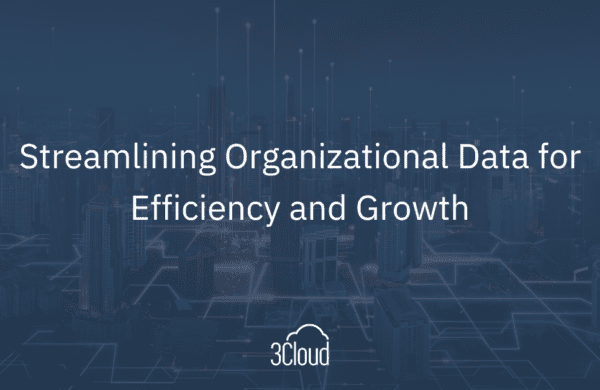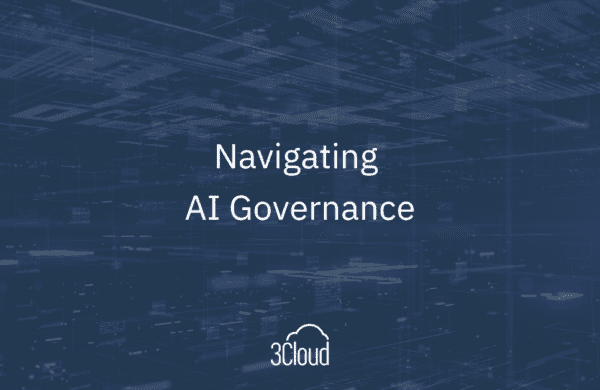Creating a culture in the workplace that integrates artificial intelligence (AI) goes beyond putting new technologies in place. It involves nurturing a culture where trust in the capabilities of AI and confidence in the team’s ability to effectively use AI are dominant. By adopting a mindset that views AI as a tool for enhancement rather than replacement, organizations can pave the way for AI to make significant contributions to their organizational growth.
This cultural shift is key for the successful adoption and integration of AI as it promotes a synergy between technology and human expertise. It encourages innovation and drives forward-thinking practices in the modern workspace. Organizations need to create an environment that supports continuous learning and development. This includes providing employees with the necessary training and resources to understand and effectively work with AI systems. Encouraging a culture of experimentation and exploration allows for the discovery of new ways to leverage AI throughout departments within an organization.
What is AI Integration in the Workplace?
AI integration in the workplace is the process of introducing and embedding AI applications, systems, and machine learning capabilities into an organization’s operations, processes, and workflows. This integration encompasses a wide range of AI technologies, from natural language processing and computer vision to predictive analytics and automated systems.
It’s important to recognize that AI integration is not a one-size-fits-all approach. Organizations must adapt and enable AI integration within their cultural context, accounting for varying levels of maturity and readiness across different departments and teams.
Why Culture is Crucial for AI Integration
A company culture that embraces AI as a strategic helper, rather than perceiving it as a threat, is necessary for long-term success. When employees at all levels understand and trust the value AI can bring, they are more likely to actively seek opportunities to leverage these tools, leading to increased efficiency, productivity, and competitive advantage.
Company culture affects nearly every aspect of AI integration, from hiring and employee engagement to ethical use and risk management. Cultivating a positive, adaptive, and ethical culture is key to maximizing the benefits of AI. AI projects often require collaboration between different departments, such as IT, data science, and business units. A culture that encourages cross-functional teamwork and open communication can ease the integration of AI technologies into various aspects of the organization.
Assessing Organizational Readiness for AI
Before starting on an AI integration journey, organizations should evaluate their current capabilities, cultural alignment, and infrastructure readiness. This assessment should include an analysis of the following:
- Existing technological infrastructure: Is the necessary hardware, software, and data infrastructure in place to support AI implementation?
- Data readiness: Is the data that is required for training AI models and systems accessible, good quality, and enough?
- Skill and talent gaps: Are there any identifiable gaps in AI-related skills and expertise within the workforce? Have you developed strategies to bridge those gaps through hiring or training initiatives?
- Cultural alignment: Is the organization open to change and willing to embrace AI technologies? Have you addressed resistance or skepticism proactively?
To build an AI-embracing culture, organizations should focus on strategies that continue to foster a learning environment, promote transparency, and build upon a culture that is open to transformation. Encouraging cross-functional collaboration, providing AI education and training opportunities, and showcasing successful AI use cases can help support a positive mindset toward AI integration.
3Cloud’s OpenAI Jumpstart helps your team identify your starting point with OpenAI and achieve proof of value within a month.
Ensuring Ethical Use, Overcoming Skepticism, and Building Trust
As AI systems become more frequent in the workplace, it’s crucial to address potential skepticism and resistance from employees effectively. Building a culture of trust in AI requires a multi-faceted approach:
- Transparency and communication: Clearly communicate goals, benefits, and potential impacts of AI initiatives, addressing concerns while involving employees in the decision-making process.
- Ethical guidelines and governance: Establish clear ethical guidelines and governance frameworks for the development and deployment of AI systems, ensuring responsible and bias-free AI usage.
- Human-centered design: Involve end-users in the design and testing of AI systems, guaranteeing that they are intuitive, user-friendly, and aligned with human values and needs.
- Continuous training and support: Provide ongoing training and support to help employees understand and effectively utilize AI tools, addressing any concerns or misconceptions along the way.
Ensuring Ethical AI Use and Fostering Innovation
As organizations start embracing and integrating AI into their workflows, it’s important to strike a balance between innovation and ethical responsibility. Ethical considerations should be at the front of all AI initiatives, guaranteeing that these technologies are developed and deployed in a manner that respects human rights, promotes fairness, and mitigates potential risks and biases.
Organizations should establish clear ethical guidelines and governance frameworks to ensure responsible AI development and deployment. This includes addressing issues such as data privacy, algorithmic bias, transparency, and accountability. By prioritizing innovation, companies can discover new opportunities, improve efficiency, and deliver more value to customers. It’s crucial for leadership to champion a culture that supports risk-taking, embraces failure as a learning opportunity, and actively seeks out novel solutions to complex problems.
The Role of Leadership in AI Culture
Leadership plays a critical role in AI integration within their organiztion. Leaders must advocate for the adoption of AI while leading by example.
Effective leaders should:
- Communicate a clear vision: Communicate a convincing vision for AI integration that aligns with the organization’s strategic goals and values, encouraging employees to embrace this vision.
- Lead by example: Actively participate in AI training and education initiatives, showing commitment to personal growth and development in this area.
- Empower and encourage experimentation: Create a safe environment for employees to experiment with AI technologies, learn from failures, and share their insights and experiences.
- Celebrate successes: Recognize and celebrate successful AI implementations, highlighting the benefits and impact on the organization’s performance and culture.
By actively supporting and championing AI integration, leaders can create a culture that embraces change and encourages employees to leverage AI in their processes and workflows.
Cultivating Access and Maturity in AI
As organizations progress in their AI journey, it’s necessary to cultivate access and maturity in AI across varying levels of the workforce. This involves providing tailored training and support to employees based on their roles, responsibilities, and AI proficiency levels.
For example, data scientists and AI specialists may require advanced training in machine learning algorithms, model development, and deployment techniques. Business analysts and decision-makers, on the other hand, may benefit from training focused on interpreting AI-generated insights and using AI-powered tools for data analysis and decision support.
Organizations should also consider implementing AI literacy programs for non-technical employees, equipping them with a basic understanding of AI concepts and how these technologies can be leveraged in their respective functions.
Measuring the Impact of Culture on AI Success
To measure the effectiveness of initiatives in promoting AI integration, organizations should establish clear metrics and KPIs. These metrics may include:
- Employee adoption rates: Tracking the number of employees actively using AI tools and applications in their daily workflows.
- Innovation metrics: Measuring the number of AI-driven projects, prototypes, or solutions developed within the organization.
- Efficiency and productivity gains: Assessing the impact of AI integration on operational efficiency, time-to-market, and overall productivity.
- Employee satisfaction and engagement: Conducting surveys and gathering feedback to evaluate employee sentiment towards AI integration and the organization’s cultural initiatives.
By regularly measuring and analyzing these metrics, organizations can identify areas for improvement, adjust their strategies accordingly, and ensure that their efforts are driving the desired outcomes.
Preparing for Future Trends in AI and Workplace Culture
Organizations must stay ahead of ongoing developing trends and prepare for the future of AI-driven workplaces. Some key trends to anticipate and plan for include:
- Increased automation and augmentation: As AI capabilities advance, more tasks and processes will become automated or augmented, requiring organizations to rethink job roles and workforce strategies.
- Ethical AI and responsible innovation: With the growing public impact of AI, ethical considerations and responsible innovation will become increasingly important, requiring robust governance frameworks and ethical AI practices.
- Human-AI collaboration: Future workplaces will likely involve more seamless collaboration between humans and AI systems, requiring organizations to develop a culture that embraces this partnership and promotes effective human-AI interaction.
- Continuous learning and adaptability: A culture of continuous learning and adaptability will be crucial for organizations to stay relevant and competitive.
Conclusion
Creating an environment that wholeheartedly welcomes AI is essential for companies looking to take full advantage of these powerful technologies. Encouraging a setting where ongoing learning, ethical considerations, and creativity are valued can enable employees to skillfully incorporate AI into their work, leading to efficiency, productivity, organizational growth. As AI increasingly transforms business operations, companies that focus on building a robust AI-friendly culture are setting themselves up for enduring success. Get started on your AI journey today.




